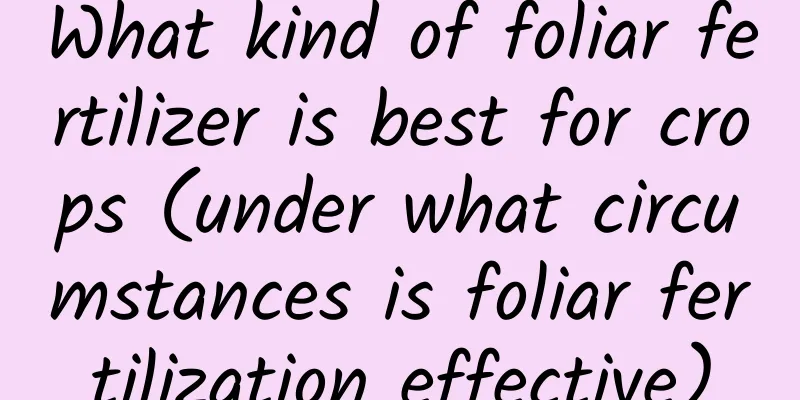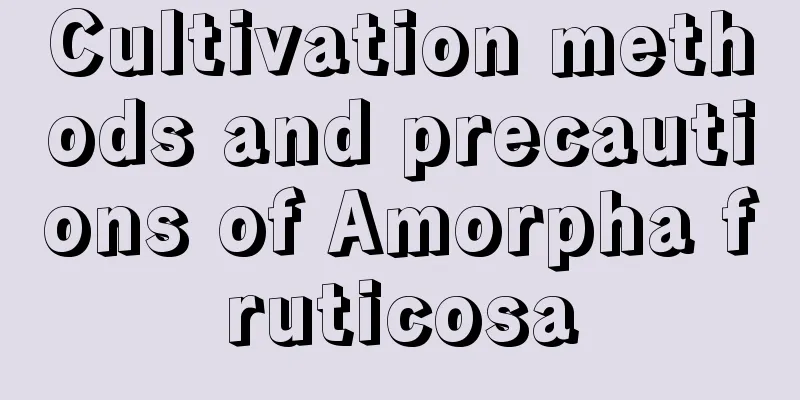What kind of foliar fertilizer is best for crops (under what circumstances is foliar fertilization effective)

|
Foliar fertilizer is a purposeful method of making one or more fertilizers into an aqueous solution of a certain concentration and spraying it on the leaves of crops to provide the nutrients needed by the crops and regulate their growth. It is also called foliar fertilization. As an auxiliary and supplement to rhizosphere fertilization, foliar fertilizer can specifically supplement the nutrients needed by crops, especially trace elements, and play an important role in increasing crop yields and improving product quality. At present, there are many types of foliar fertilizers on the market, and there are hundreds of them registered and certified by the national agricultural management departments alone. There is still a lack of a unified classification standard. In production, foliar fertilizers can be divided into three categories according to their effects on crops: nutrient supply type, growth regulation type, and dual-purpose type. When using foliar fertilizer, you should consider the specific situation and not use it blindly. If the crop shows the following phenomena, you should add nutrients to the foliage. 1. When the crop root absorption capacity is weak . 2. When top dressing of crop roots is not possible. 3. After crops are hit by natural disasters. 4. When crops are at the critical period of fertilizer demand. 5. Crops suffer from nutrient deficiency, especially due to the lack of trace elements that are difficult to move in the crop body. Principles of foliar fertilization:1. Choose appropriate fertilizer according to the growth conditions of crops The selection of foliar fertilizer should be targeted and purposeful, and the required foliar fertilizer should be selected according to the urgent needs of the crop and the expected effects to be achieved. 2. Choose the appropriate foliar fertilizer according to the characteristics of various nutrients and crop varieties Spraying phosphate fertilizers in the late growth period of cereal crops can help them mature earlier. Cotton seedlings are affected by low temperatures and their root absorption capacity is weak. Spraying urea can increase leaf area, strengthen photosynthesis, promote reproductive growth, and form strong seedlings. It is strictly forbidden to spray fertilizers containing chloride ions on crops that are sensitive to chlorine. 3. Reasonable concentration If the concentration of foliar fertilizer is too high, it may cause fertilizer damage; if the concentration is too low, the purpose of fertilization cannot be achieved. Therefore, it is necessary to master the reasonable spraying concentration, such as: urea 0.5%~1.0%, potassium dihydrogen phosphate and ferrous sulfate 0.2%~1.0%, magnesium sulfate 0.1%~0.2%, borax 0.05%~0.10%, and calcium chloride 0.3%~0.5%. 4. Determine the spraying location based on the element's mobility, and the number and quantity of spraying should be appropriate 5. Apply fertilizer to the leaves at the right time to ensure that the solution has enough time to moisten the leaves The length of time the solution wets the leaves directly affects the effect of the leaves absorbing nutrients, and is generally required to be maintained at 0.5~1.0h. Wetting agents can be added to the solution to reduce the surface tension of the solution, increase the contact area with the leaves, and improve the absorption effect. Issues that should be paid attention to when applying foliar fertilizer1. Choose safe and pollution-free foliar fertilizers registered and certified by the Ministry of Agriculture. 2. Use according to the specified concentration. 3. Do not spray at high temperatures. 4. Stir thoroughly before spraying, completely blend it into water, atomize it finely, and spray it evenly. |
Recommend
Characteristics of dandelions, what do dandelions look like?
1. Appearance characteristics 1. Roots: Dandelion...
How to grow mulberry leaf peony well
Growing conditions of peony Mulberry leaf peony h...
The growth environment and local conditions of Ligustrum lucidum
Ligustrum lucidum growth environment and conditio...
He planted a peanut in a pot, and everyone followed suit
Peanut potted plants Can you recognize this cute ...
Gardenia and rose...Drink some sweet and sour water, and flower buds will pop out. It is more effective than taking a shot of chicken blood!
Tomato + rice water We all know that tomatoes tas...
How to prune Michelia
1. Cut off unnecessary branches Overcrowded branc...
Will the Phoenix Bamboo bloom?
1. Can it bloom? Many friends may wonder: How can...
How to grow baby's breath? Can I fertilize it during flowering?
1. Maintenance methods 1. Light: Baby's breat...
Common varieties of Ficus microcarpa
Croton The leaves are halberd-shaped, with dark g...
Is glass jade suitable for indoor cultivation?
Is it poisonous? Many curious friends have asked ...
How to grow Chrysanthemi orchid
1. Soil It usually grows better in soil containin...
How to care for azalea bonsai and how to shape azalea bonsai
1. Bonsai maintenance methods 1. Watering: It lik...
When is the best time to prune wax apple trees?
Wax Apple Tree Pruning Pruning wax apple trees ca...
Fertilization method of ash wood
1. Before putting on the basin Before potting, en...
Goldfish Chlorophytum breeding methods and precautions
1. Temperature Chlorophytum comosum is a tropical...









